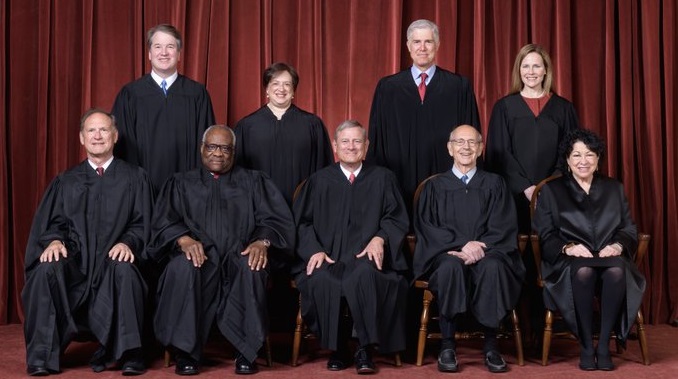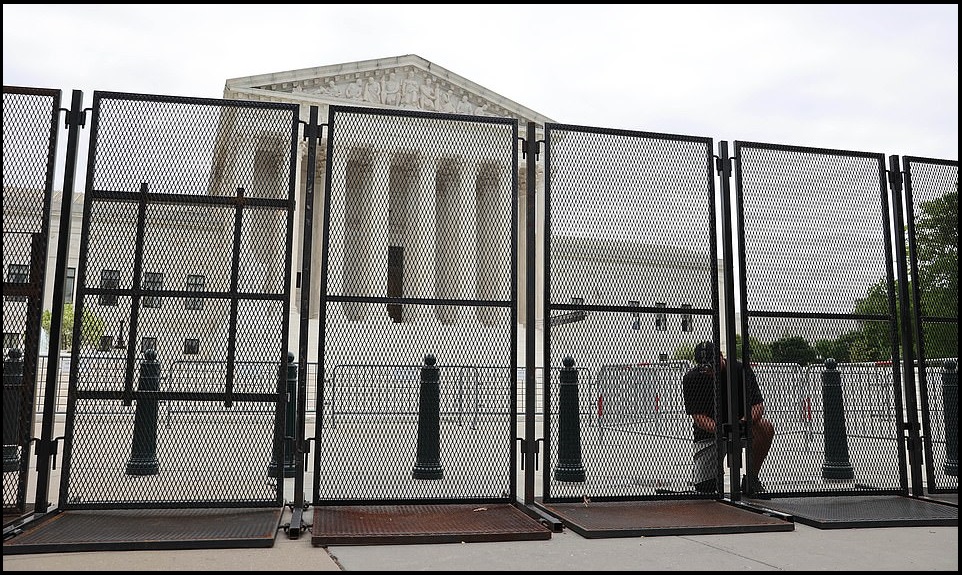Supreme Court Rules State and Local Government Cannot Ban Faith-Based Schools from Public Funding
A major win for parents and school choice today in a 6-3 decision from the Supreme Court [pdf Ruling Here]. The high court ruled that Maine violated the Constitution by refusing to make public funds available for students to attend faith-based schools. The ruling is broad and makes it clear when any state and/or local government choose to subsidize private schools or provide vouchers for school choice, they must allow families pay for religious schools.
 Teachers’ unions, left-wing indoctrination institutions and the media are not happy with the Supreme Court decision. The ruling now makes it possible for state or local school vouchers to be used for private, faith-based schools. Those schools also have religious exemptions on the types of material and educators they allow in their education programs.
Teachers’ unions, left-wing indoctrination institutions and the media are not happy with the Supreme Court decision. The ruling now makes it possible for state or local school vouchers to be used for private, faith-based schools. Those schools also have religious exemptions on the types of material and educators they allow in their education programs.
In the bigger picture the court has again affirmed ‘freedom of religion‘ not ‘freedom from religion‘. Parents who wish their children to receive a moral and virtuous education should not be blocked by state and local politicians who promote sexualization of children, immoral conduct and alternative lifestyles for kids. SCOTUS BLOG has background details including the dissent:
SCOTUS BLOG: – […] The dispute before the court in Carson v. Makin began as a challenge to the system that Maine uses to provide a free public education to school-aged children. In some of the state’s rural and sparsely populated areas, school districts opt not to run their own secondary schools. Instead, they choose one of two options: sending students to other public or private schools that the district designates, or paying tuition at the public or private school that each student selects. But in the latter case, state law allows government funds to be used only at schools that are nonsectarian – that is, schools that do not provide religious instruction.
Two Maine families went to court, arguing that the exclusion of schools that provide religious instruction violates the First Amendment’s free exercise clause. On Tuesday, the justices agreed. Roberts suggested that the court’s decision was an “unremarkable” application of prior decisions in two other recent cases (both of which Roberts wrote): Trinity Lutheran Church v. Comer, in which the justices ruled that Missouri could not exclude a church from a program to provide grants to non-profits to install playgrounds made from recycled tires, and Espinoza v. Montana Department of Revenue, holding that if states opt to subsidize private education, they cannot exclude private schools from receiving those funds simply because they are religious.
In this case, Roberts explained, Maine pays tuition for some students to attend private schools, as “long as the schools are not religious.” “That,” Roberts stressed, “is discrimination against religion.” It does not matter, Roberts continued, that the Maine program was intended to provide students with the equivalent of a free public education, which is secular. The focus of the program, Roberts reasoned, is providing a benefit – tuition to attend a public or private school – rather than providing the equivalent of the education that students would receive in public schools. Indeed, Roberts observed, private schools that are eligible for the tuition benefit are not required to use the same curriculum as public schools, or even to use certified teachers. He suggested that the state’s argument was circular: “Saying that Maine offers a benefit limited to private secular education is just another way of saying that Maine does not extend tuition assistance payments to parents who choose to educate their children at religious schools.”
Roberts similarly rejected the state’s argument that the tuition-assistance program does not violate the Constitution because it only bars benefits from going to schools that provide religious instruction. Although Trinity Lutheran and Espinoza focused on organizations’ religious status (rather than on whether the organizations would be using government funds for religious purposes), those rulings did not hold that states could make funding for private schools hinge on whether the schools provide religious instruction, Roberts explained. To the contrary, Roberts indicated, there is no real distinction between a school’s religious status and its use of funds for religious purposes.
Roberts also dismissed any suggestion that Tuesday’s ruling would require the state to fund religious education. Maine has other options to eliminate its need to fund private schools, Roberts noted: It could, for example, create more public schools or improve transportation to public schools. But having chosen to provide public funding for private schools, Roberts concluded, “it cannot disqualify some private schools solely because they are religious.” (read more)

Actual physical barriers are what it takes in 2022 to stop the violent left-wing democrats from attacking the Supreme Court. Think about what that reality showcases about the state of our union. There is a particular hypocrisy considering the J6 committee narrative “democracy under attack.”





Post a Comment